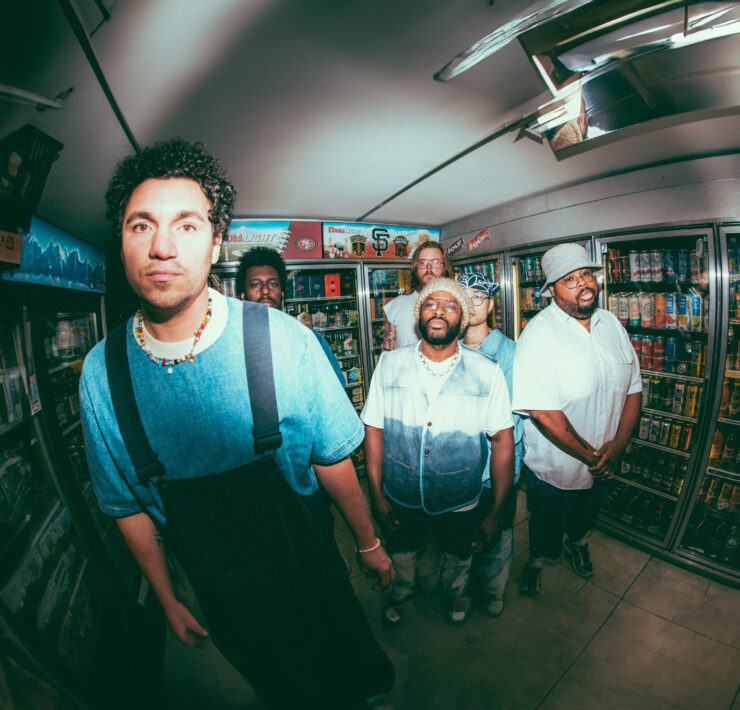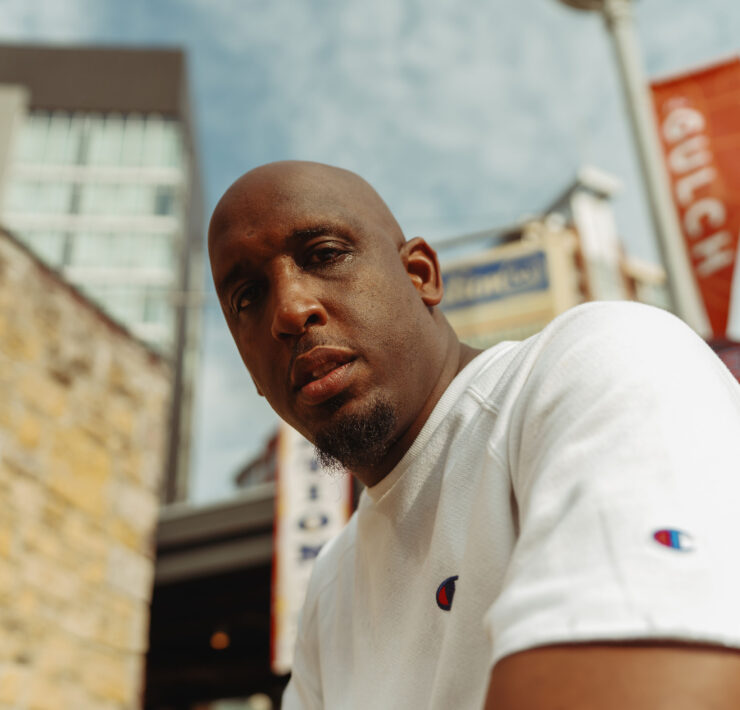
JENNIFER KENT WAS NOT PREGNANT but felt the need for a sort of “doula.” For the unfamiliar, doulas act as a kind of guide for women during childbirth and sometimes afterward. They do more than just help. They “walk alongside, providing information when necessary, and act as a sounding board,” Kent explains. Doulas generally know more about the process of birth and the emotional and physical aspects of the journey than the women they coach, and they act as a sort of Sherpa across the terrain.
“There’s this moment that I see in moms when they’re giving birth when they’ve come to the end of all of their resources, and they think they can’t do it anymore,” she explains. “They end up pushing through, coming to this other side where there’s this euphoria.”
Kent knows the details of birth and doula work because she is one herself. And after eight years of Job-like suffering—a broken engagement, years of unemployment, deaths of loved ones, all followed by a cancer diagnosis—with no spiritual answers in sight, she wanted to find someone who could play the kind of role she plays in young mothers’ lives in her own spiritual life.
“I thought, if there’s somebody who could help me get to that [euphoric] place, like almost doula me through the spiritual [crap] I was sludging through, then I wanted that,” she says.
She eventually found “that” on the internet where she first heard about the idea of a spiritual director.
RECOVERING IDOLATERS
The average churchgoing American Protestant is not weird or rich enough, by conventional standards, to have a spiritual director. We think of someone like Madonna having access to that kind of utility, not Jill from accounting. But Jill from accounting could probably benefit from spiritual direction. We all could.
Kent’s comparison between a doula and a spiritual director is apt. It is a primary metaphor for the Christian life. Jesus says to Nicodemus, to be saved “you must be born again” (John 3:3). But birth is a process. We’re well aware of that physically. And yet, America’s unique brand of evangelism tacitly suggests Christians are born in an instant: at an altar after praying a prayer. But the New Testament writers speak of salvation as a process: referring to Christians as “those who are being saved” (1 Corinthians 1:18).
Pastor and author John Ortberg points out that the Apostle Paul describes himself as being “in the pains of childbirth until Christ is formed in you” as he leads his disciples to maturity (Galatians 4:19). And according to Ortberg, we all need someone in that kind of role Paul describes—to be a coach, a doula, a mentor.
Ortberg, who literally wrote the book on spiritual growth (The Life You’ve Always Wanted), says the journey toward spiritual maturity is something like the process of recovery, or at least it should be. He argues that we are all addicts in a way: “The Bible word for addiction is idolatry, so we all wrestle with it.”
At the end of an Alcoholics Anonymous meeting, participants are told, “Keep coming back. It works,” Ortberg explains. He’s been observing the process of AA a lot recently.
“They know they found a way of life that is not mechanical or legalistic, but is very concrete and tangible,” he says. “And if
they engage in that way of life deeply, they will receive power and be saved, and if they don’t, they will drink and die. And the great problem in the Church is that we have largely lost a way of life in following Jesus that we know works.”
Ortberg contends that since disciples are essentially recovering idolaters, like addicts, every disciple needs a sponsor.
“A sponsor is not a life coach,” he explains. “A sponsor is somebody who has practiced the way enough that they can help you find out how to practice it.” This kind of relationship, he says, is essential.
EVERYONE NEEDS A DOULA
Jeanne Mayo is the founder of Youth Leader’s Coach, a nonprofit that coaches youth and young adult pastors through a style of spiritual mentoring. In order to accommodate the annual, two-day advances called The Cadre she hosts in her home, she’s knocked down a couple of walls to expand her living room. Mayo is the kind of sponsor Ortberg describes. With 40 years of ministry under her belt, she’s knows the terrain of pastoral work and is able to guide. But these advances aren’t just for talking shop.
There’s an axiom that says, “A man who is his own doctor has a fool for a doctor.” Mayo agrees that the same applies for pastors. The leaders who enter her home are expected to coach others into Christian maturity, but they also need coaches. That’s where she comes in.
She says the reason she hosts these cohorts in her home, rather than in a church or some other space, is for the sake of human connection. “People want to feel connected to an actual person,” she says.
During each advance, there is a night where the leaders gather around and are told, “Tonight, it’s OK not to be OK.” They are invited to share the things that are “sucking the spiritual life out of [them],” whatever is shared in the circle stays in the circle—a rare opportunity for spiritual leaders.
What Jeanne finds are people who are struggling to grow. They open up, confessing affairs and porn addictions, expressing their doubts about the faith, sharing their questions about their sexuality— there are as many stories as people in the room. They all, like Kent said, are in need of someone to “almost doula them through the spiritual junk they are sludging through.”
The great problem in the Church is that we have largely lost a way of life in following Jesus that we know works.
Throughout the year, these leaders have personal access to Mayo through email, conference calls and meetings like The Cadre.
Inspired by the New Testament model for spiritual growth— that is, a rabbi-disciple or group of disciples relationship—Mayo believes that such a relationship, one on one, is essential to spiritual growth. She argues that Jesus models this mentor-mentee relationship in His ministry.
“He prioritized personal relationship with 12 guys,” she explains. “And out of the 12 guys, He “He prioritized personal relationship with 12 guys,” she explains. “And out of the 12 guys, He played favorites with three. And out of the three, He had one, John the Beloved. He did not think His main impact was the masses. He didn’t have the Last Supper with the masses.”
She recalls a story about Billy Graham. She says the famous evangelist was asked what he might do differently in his ministry if he could do it all again.
She paraphrases: “He said, ‘I’d put less focus on my public ministry, and put more focus on discipling individuals around me that could multiply my efforts. I would choose one man each year and I’d bring him up close to me. Then after that year, I’d send that man out into the harvest field to whatever he felt he could do for Jesus Christ.”
BECOMING A SPIRITUAL ADULT
The goal of discipleship is spiritual maturity. Spiritual directors help us become spiritual adults. But what does a spiritual adult look like? The same way one can look at a chart and know that a mature caterpillar looks like a butterfly, Ortberg argues that a mature Christian looks like Christ.
“Having the character of Jesus formed in us is a helpful way to think about spiritual growth,” he says. “That is primarily defined by love, which is to will the good for other people as God understands the good, to will that good for people and to work for that good in people and increasingly become the kinds of persons who habitually and automatically will the good. That’s spiritual growth.”
And what does a spiritual adult do? According to the experts and the Bible, simply put, they help other Christians grow up.
The writer of Hebrews laments as he writes to the Church: “You have been believers so long now that you ought to be teaching others … You are like babies who need milk and cannot eat solid food” (Hebrews 5:12).
It is a sentiment that ministers today still share.
Mayo points to the statistics that suggest a decline in Christian faith to indicate that the American Church hasn’t won “the gold medal for discipleship,” and she agrees with the Hebrews author that mature disciples make disciples. So does Ortberg.
“One of the ways you maintain sobriety [in AA] is by helping others become sober,” says Ortberg. “In the Christian Church, we tend to think of spiritual directors as this subset of people that have received some sort of special training. But in AA, the very nature of following the way is also the way to become a guide to somebody else. And I think that if we get it right, it will look a lot more like AA.”

THE END GOAL
Years ago, Kent reached out to the author of an article about spiritual direction she’d stumbled across online. She needed to know more.
Today, the two of them have Today, meetings on Skype to discuss the road to spiritual maturity. She describes herself as “working out what she believes” with her spiritual doula. She says this relationship has become essential to her walk with God. But it wasn’t exactly what she expected.
“I thought it would be a lot more directed,” she says. “I assumed there would be a lot more homework and things to do, but it’s not that at all. It’s just somebody years ahead of me kind of having me process what my spiritual journey is like and giving me space to process that and offering me gentle nudging here and there. I thought it would be a lot more guided, and I wanted that, but maybe that’s not what I needed. I needed to know that I could find it in myself.”
A spiritual mentor-mentee relationship looks different in each case as a necessity. Although he contends for a “coherent way of life,” Ortberg says that each person’s journey has to be “individualized.” Every person and coach is different, and determining what a program for spiritual growth will look like will vary. But the end goal is always the same: becoming like Jesus.
At the end of her maturation chart, Jennifer sees herself becoming a hospital chaplain, inviting people to wade into the depths of the spiritual life. She’s receiving spiritual direction, in part to make spiritual sense of all that is happening in her life, but also as preparation to one day provide spiritual direction to others.






















